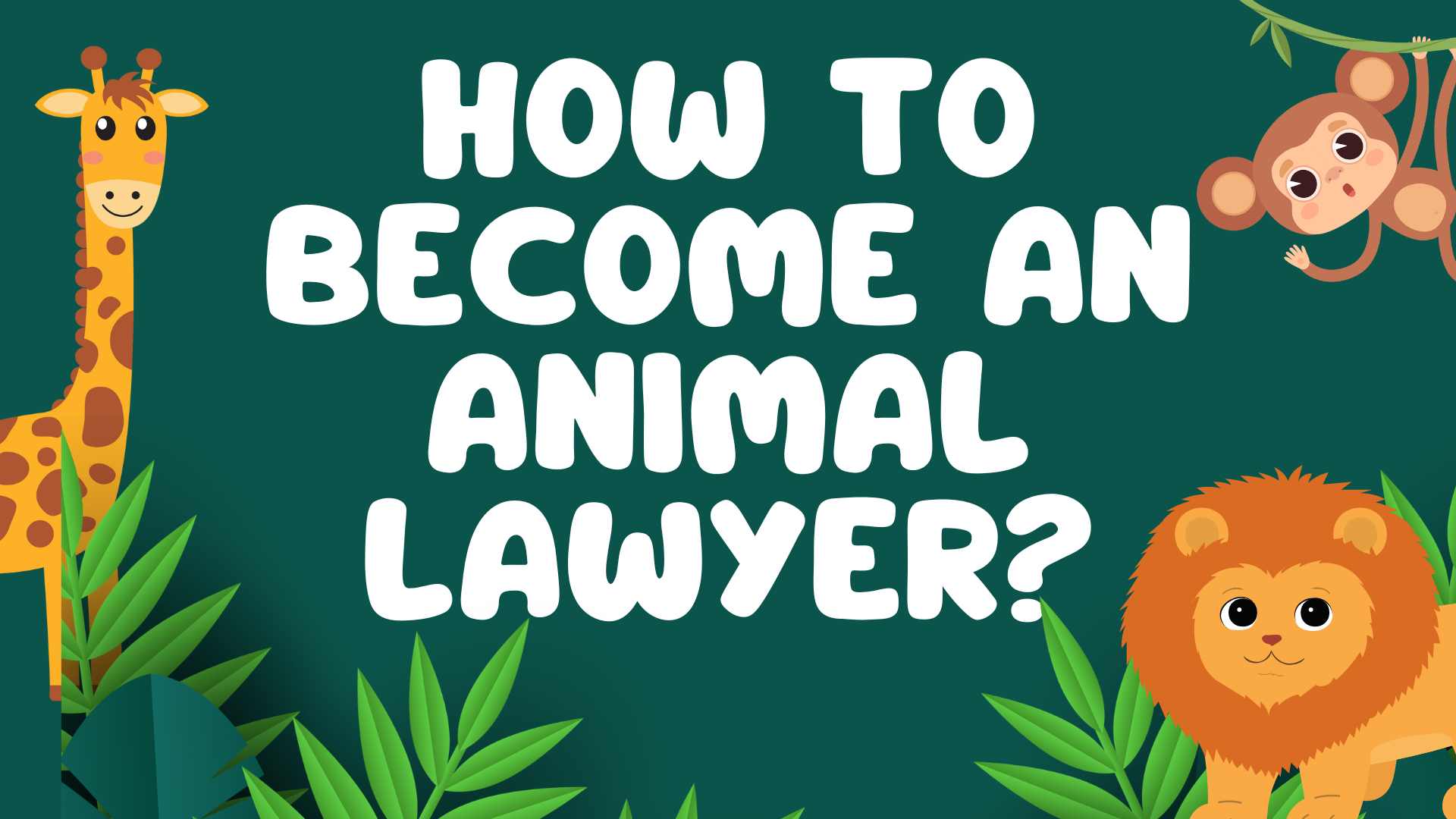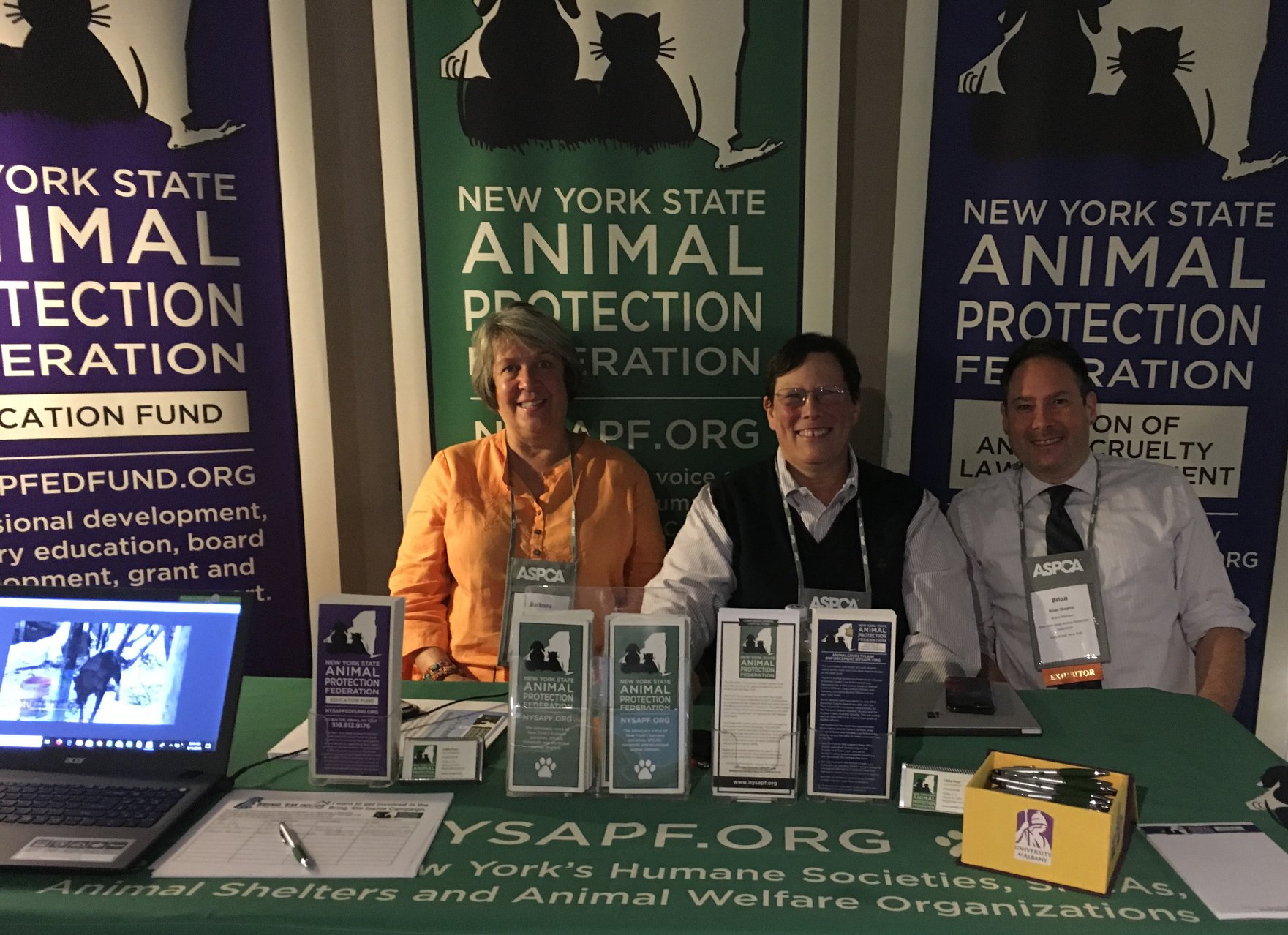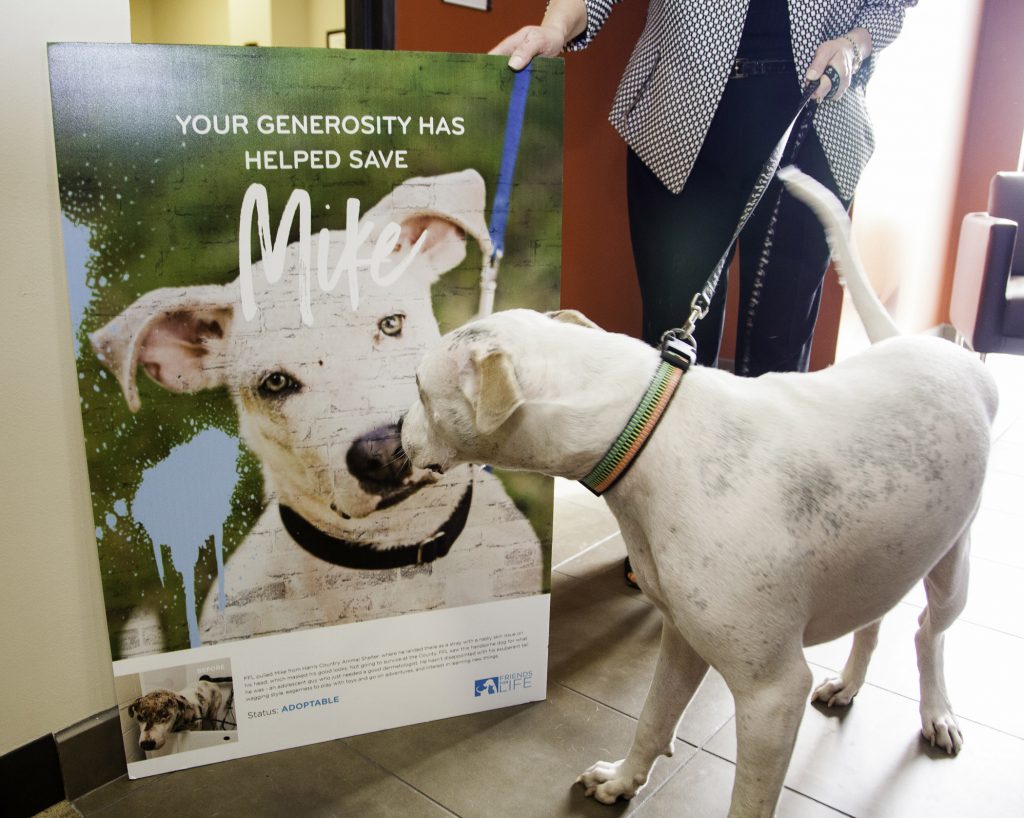How to Become an Animal Lawyer?

Becoming an animal lawyer requires completing a bachelor’s degree and a Juris Doctor (J.D.) Degree, passing the bar exam, and gaining experience in animal law through internships or jobs.
Table of Contents
How to Become an Animal Lawyer? Are you passionate about animals and interested in advocating for their rights? If so, becoming an animal lawyer may be the perfect career path for you. Animal lawyers specialize in legal matters related to animals, such as animal welfare, animal rights, and animal cruelty cases.
This field of law is dedicated to protecting and representing animals in legal proceedings. We will explore the steps you need to take to become an animal lawyer and the potential career opportunities in this rewarding field.

Credit: animaljustice.ca
Understanding Animal Law
Discover the path to becoming an animal lawyer with a comprehensive understanding of animal law. Explore the steps and qualifications needed to advocate for the rights and welfare of animals in the legal field.
Understanding Animal Law
Animal law is an expanding field that deals with legal issues pertaining to animals. It encompasses various areas, including animal rights, welfare, conservation, and protection. If you have a passion for animals and a desire to advocate for their rights and well-being, pursuing a career as an animal lawyer may be the perfect fit for you. In this section, we will delve into what animal law entails and why it is such an important area of the legal profession.
What Is Animal Law
Animal law can be defined as a branch of law that concerns itself specifically with legal matters involving animals. It involves both domesticated and wild animals, as well as the legal rights and responsibilities associated with their treatment, proper care, and conservation. Animal law covers a wide range of issues, including animal cruelty, wildlife protection, custody disputes, veterinary malpractice, and animal-related transactions. It may also involve cases related to zoos, circuses, research labs, and other institutions that use or exploit animals.
Why Animal Law Is Important
Animal law plays a crucial role in protecting the rights and well-being of animals. It establishes legal frameworks and standards that serve to safeguard animals from cruelty, neglect, and abuse. By advocating for animal rights, animal lawyers strive to ensure that animals are treated with compassion and fairness. These legal protections not only benefit individual animals but also contribute to the conservation and preservation of species and ecosystems.
Animal law is important for several reasons:
1. Preventing Animal Cruelty: Animal law provides a platform to combat animal cruelty in all its forms, whether it’s intentional acts of violence or neglect caused by irresponsible ownership. It enables legal action to be taken against those who harm or mistreat animals, serving as a deterrent and promoting accountability.
2. Animal Welfare: Animal law focuses on promoting the overall welfare of animals, ensuring they are provided with caring environments, appropriate medical treatment, and proper nutrition. It encourages responsible pet ownership and supports initiatives that improve the living conditions of animals.
3. Conservation: Animal law also extends to protecting wildlife and their habitats. It establishes regulations to prevent the exploitation of endangered species and helps conserve biodiversity. By addressing issues such as habitat destruction and illegal wildlife trade, animal lawyers contribute to the preservation of ecosystems and the well-being of animal populations.
4. Public Health and Safety: Animal law addresses matters that impact public health and safety. It covers topics such as dangerous animals, zoonotic diseases, and the regulation of animal-related industries. By ensuring proper standards and regulations are in place, animal lawyers contribute to safeguarding the well-being of both animals and humans.
5. Advocating for Animal Rights: Animal law plays a pivotal role in advocating for the recognition and protection of animal rights. It challenges the notion that animals are mere objects and seeks to establish their legal status as sentient beings entitled to certain fundamental rights. Through litigation, lobbying, and advocacy efforts, animal lawyers contribute to the advancement of animal rights across society.
Understanding animal law is crucial for anyone interested in pursuing a career as an animal lawyer. By acquiring knowledge and skills in this field, you can advocate for the rights, welfare, and protection of animals, making a positive impact on both individual lives and the broader society we share with them.

Education And Training
When it comes to pursuing a career as an animal lawyer, education and training play a crucial role in preparing you for this specialized field. A solid academic foundation and in-depth understanding of animal law are essential to become a successful animal lawyer. Let’s delve into the different aspects of education and training required to pursue a career in animal law.
Undergraduate Degree
To embark on the path of becoming an animal lawyer, it is essential to start with a strong undergraduate education. Prospective animal lawyers typically pursue a Bachelor’s degree in pre-law, political science, environmental studies, or a related field. It’s important to choose a major that develops critical thinking, research, and analytical skills, which are vital for success in law school and beyond.
Law School
After completing a Bachelor’s degree, aspiring animal lawyers must attend law school to obtain a Juris Doctor (J.D.) degree. Enrolling in a reputable law school with a focus on animal law or offering relevant courses is advantageous. Law school prepares individuals for the complex nature of legal practice and equips them with the necessary skills to advocate for animals’ rights in a legal setting.
Animal Law Courses And Programs
Once enrolled in law school, students interested in specializing in animal law should seek out specific courses and programs related to this area of law. These courses provide an in-depth understanding of animal welfare laws, animal rights, and the legal framework surrounding animal advocacy. Participating in moot court competitions focused on animal law and gaining practical experience through internships or externships can further enhance a future animal lawyer’s expertise.
Gaining Experience
Gaining experience is essential in becoming an animal lawyer. This involves working in animal advocacy organizations, volunteering at animal shelters, and interning with law firms specializing in animal rights cases. It is also beneficial to attend seminars and conferences related to animal law to expand knowledge and network with professionals in the field.
Introductory Paragraph:
When it comes to embarking on a career as an animal lawyer, gaining relevant experience is crucial. Not only does experience expose you to the practical aspects of working in animal law, but it also helps you develop essential skills and build a strong network within the industry. This article will guide you through various avenues for gaining experience, including internships and externships, volunteer work, and animal law clinics.
Internships And Externships:
Internships and externships provide excellent opportunities for aspiring animal lawyers to gain hands-on experience in the field. By working under the guidance of experienced professionals, you can acquire valuable insights into the legal challenges faced by animals and the laws protecting their rights. Here’s how you can make the most of these opportunities:
- Search for internships and externships at law firms specializing in animal law or organizations dedicated to animal welfare.
- Apply to programs that offer structured mentoring and training, allowing you to directly contribute to real cases.
- Participate actively in research tasks, document preparation, and court hearings to deepen your understanding of animal law.
- Utilize your time to network with legal professionals, who can provide valuable guidance and potentially open doors to future employment.
Volunteer Work:
Volunteering is another fantastic method to gain practical experience in animal law while making a positive impact. Here are some ways to maximize your volunteer work:
- Connect with local animal shelters, rescue organizations, and advocacy groups that engage in animal-related legal issues.
- Offer your expertise by assisting with legal research, drafting petitions, or participating in community outreach programs.
- Collaborate with experienced animal lawyers for mentorship and guidance, enhancing your knowledge and skills.
- Attend workshops and seminars organized by animal welfare organizations to stay updated on current legal issues and trends.
Animal Law Clinics:
Animal law clinics provide a unique environment where aspiring animal lawyers can practice their skills under the supervision of experienced faculty members. Here’s how you can benefit from animal law clinics:
- Look for law schools with animal law clinics, which often offer opportunities to work on real cases involving animal cruelty, neglect, or rights issues.
- Apply to these clinics and participate actively in legal research, brief writing, and courtroom advocacy to hone your legal skills.
- Collaborate with other students who share your passion for animal law, creating a supportive network that can help you throughout your career.
- Attend animal law conferences and events organized by these clinics to meet practitioners, experts, and policy-makers in the field.

Credit: theaawa.org
Building A Network
Building a strong network can greatly enhance your journey towards becoming an animal lawyer. By connecting with like-minded individuals, professionals, and organizations in the field of animal law, you can gain valuable insights, support, and opportunities. Here are some effective ways to build your network and pave your way towards a rewarding career as an animal lawyer.
Joining Animal Law Organizations
One of the best ways to build a network of professionals passionate about animal law is by joining reputable animal law organizations. These organizations offer a platform for networking, sharing information, and collaborating on issues related to animal rights and welfare.
Consider joining organizations such as:
- The Animal Legal Defense Fund (ALDF)
- The American Bar Association (ABA) Section of Animal Law
- Animal Welfare Institute (AWI)
Membership in these organizations not only provides access to valuable resources and educational materials but also opens doors to events, conferences, and networking opportunities.
Attending Conferences And Workshops
Attending conferences and workshops specific to animal law is crucial for expanding your network. These events bring together professionals, experts, and advocates in the field, creating the perfect environment for networking and learning from others in the industry.
Consider attending notable conferences and workshops such as:
- The Animal Law Conference organized by ALDF
- The International Animal Law Conference
- The Animal Law and Policy Conference
These gatherings provide insightful presentations, panel discussions, and networking sessions where you can connect with potential mentors, colleagues, and employers.
Connecting With Animal Law Professionals
Building a network also involves reaching out to animal law professionals directly. Connecting with individuals who have already established themselves in the field can offer invaluable guidance and mentorship.
Social media platforms like LinkedIn are great tools for this purpose. Research and connect with animal law attorneys, advocates, and other professionals to expand your network.
Moreover, consider attending animal law seminars and workshops, which are often conducted by experienced professionals. Engage with them during Q&A sessions, and if the opportunity arises, introduce yourself and express your interest in their work.
By building a strong network through joining animal law organizations, attending conferences and workshops, and connecting with animal law professionals, you will not only gain knowledge and support but also position yourself as a dedicated and passionate animal lawyer. Nurture these relationships, seize opportunities, and continue to grow your network throughout your journey in animal law.
Working As An Animal Lawyer
Becoming an animal lawyer can be a fulfilling and rewarding career for those who are passionate about advocating for the rights and welfare of animals. Working as an animal lawyer involves handling a diverse range of legal cases and working closely with animal advocacy organizations to promote animal rights.
Areas Of Practice
Animal lawyers can specialize in various areas of practice, including animal cruelty cases, animal welfare legislation, wildlife conservation, and animal custody disputes. They may also provide legal counsel to animal rescue organizations, veterinary practices, and pet owners. Animal lawyers often work on cases involving animal abuse, neglect, and exploitation, and they may also represent clients in cases related to pet ownership, animal rights, and environmental protection.
Challenges And Rewards
Working as an animal lawyer comes with its own set of challenges and rewards. Animal lawyers may face emotional and ethical challenges when handling cases involving animal abuse and neglect. However, the rewards of advocating for animal rights and welfare can be substantial, as these legal professionals play a vital role in ensuring that animals are protected and treated ethically under the law.
Promoting Animal Rights And Welfare
One of the primary roles of an animal lawyer is to promote animal rights and welfare through legal advocacy and policy initiatives. Animal lawyers work tirelessly to draft and support legislation that protects animals, and they may also engage in litigation to hold individuals and organizations accountable for violations of animal welfare laws.

Credit: www.law.com
Conclusion
Becoming an animal lawyer requires a deep passion for animal welfare and understanding of legalities. By pursuing relevant education, gaining practical experience, and staying updated on animal laws and regulations, you can pave your way into this unique and rewarding legal niche.
Embrace your dedication and drive to advocate for the rights of animals.
Introducing Jonah Plum, a legal luminary whose journey through the corridors of justice has been intertwined with the eloquence of the written word. Born and raised in the vibrant city of Seattle, Washington, Jonah's early fascination with language and debate laid the foundation for a remarkable career in law.
Jonah's scholarly odyssey began at Harvard Law School, where they immersed themselves in the study of jurisprudence, honing their analytical prowess and legal acumen. Armed with a law degree, they entered the legal arena, navigating courtrooms and boardrooms with a fervor for justice. Yet, it was the realization of the transformative power of the written word that led Jonah to pivot from legal briefs to the world of blogging.
A digital advocate in the truest sense, Jonah recognized the need for demystifying legal concepts and making them accessible to a broader audience. This blog, a virtual repository of legal insights, transcends geographical boundaries, connecting with a global readership hungry for clarity amidst legal complexities.
Beyond the black letter of the law, Jonah delves into the human stories that underscore the legal landscape. Their writing goes beyond legal analysis, weaving narratives that humanize the law, shedding light on its impact on individuals and society.






